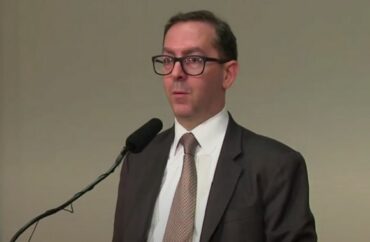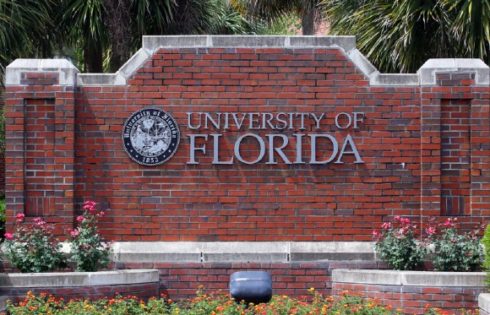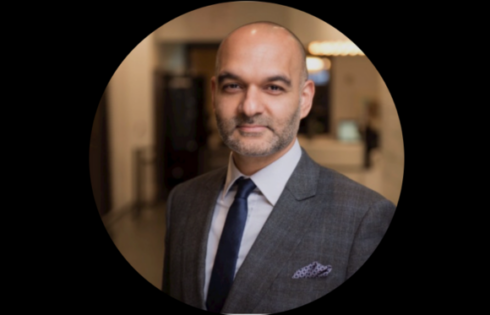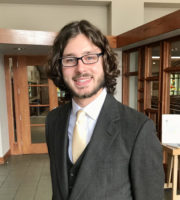
But accreditor says its members have a voice and it does not interfere
Southern states should update their laws to provide flexibility for higher education institutions to choose new accreditors, according to a former Department of Education official.
Adam Kissel, a senior fellow at the Cardinal Institute for West Virginia Policy, said states such as Florida need to revise their requirements that some universities go through the Southern Association of Colleges and Schools Commission on Colleges.
Though the commission once had a practical monopoly, the Trump Administration, where Kissel served as a deputy assistant secretary in the Department of Education, changed accreditation rules to allow for national competition.
Yet, some colleges still default to the Southern Association of Colleges, Kissel (pictured) said. He explained further in a phone interview with The College Fix.
“Accreditation is required for access to Federal Student Aid programs,” Kissel told The Fix during a phone interview.
“Therefore, accreditors have a tremendous amount of power, and they abuse their power,” he said. “What is interesting is that accreditors are private associations, not part of the government,” he said, noting they set their own standards so long as they also uphold federal legal requirements.
Kissel laid out his arguments both in a recent brief for The James G. Martin Center for Academic Renewal and last year for the Texas Public Policy Foundation. There, he gave examples of accreditors, including SACS, going beyond what he viewed as proper and interfering with things like presidential searchers or course loads.
“Almost no college in America can function without having access to subsidized student loans,” Kissel said. “If students had to hunt on the private market for loans…it would likely depress their ability to pay for college.”
Even though each college holds the status of a membership institution with its accreditor and has a say in the standards as a membership institution, Kissel said membership is declining and accreditors are setting their own standards.
“Over time membership has waned because the accreditor sets its own standards, and they don’t do a poll asking the members ‘well, what do you think of this standard,’ they just impose the new standard,” Kissel told The Fix during the interview.
MORE: SACS tried to stop two Republicans from applying for president roles
“For instance, if an accreditor decides to have a DEI requirement, it doesn’t ask its members what they think of the requirement,” he said. “There might be a comment period, but at the end of the day, the advice and feedback from the members isn’t a vote; it’s just advice. The accreditor decides and everyone must comply or leave.”
SACS rejected mandatory DEI statements, as previously reported by The Fix.
The problem with regional accreditors is that, before the Department of Education removed those regional restrictions, colleges couldn’t just leave the accreditor without losing their student loan status because there was not another accreditor in that region, according to Kissel.
He noted that colleges cannot just join a new accreditor, because that accreditor has to be recognized by the Department of Education and prove that it meets all federal requirements and has membership institutions. “A college is putting all of its Federal Student Aid money at risk by leaving an already recognized accreditor,” he said.
It is the need for federal student aid and the lack of other accreditors allowed to operate within a region that enables accreditors to abuse their power, he said.
“Large state systems across the southeast have been affected by SACS interfering with governance.”
SACS disagrees with Kissel’s characterization
“For Mr. Kissel to claim that SACSCOC is interfering with college governance is based upon a lack of understanding about professional standards and who reviews the institution as well as the purpose of accreditation and how accreditation works,” Sandra Jordan, the organization’s chief of staff told The Fix in an email.
“At the most basic level, that statement fails to recognize that all of the formally regional accrediting organizations in the U.S. have very similar standards,” Jordan said. “If an institution is cited for not maintaining a standard at one accrediting organization, there is a very good chance they would be found non-compliant at any of the accrediting bodies.”
Additionally, dividing the states into regions of accreditation was not a “cartel” decision, but a financial one.
“One of the reasons we were once regional was to control the cost to our membership institutions,” Jordan said during a phone interview. “Flying within a region is less expensive than flying across the country. Additionally, the issues that accreditors face differ from region to region. For example, the funding in California is a lot different than the funding in Alabama.”
She wrote that aside from the federal and state mandated standards, the membership institutions make the standards, not SACS.
The group “does not create the standards that guide the work of the organization. Those are created by the membership, reviewed every five years by the membership, and voted on after the reviews by the entire membership.”
“It is rather odd to claim that we are influencing an ideology when we are a professional organization whose members determine the standards, or best practices, for the profession,” Jordan said.
She wrote in her email that the reviewers come from the membership institutions themselves, and from public members in the membership regions.
“Every year, some 5,000 peer reviewers and ultimately the board are involved in institutional reviews,” she said.
“These are seasoned higher education professionals that make recommendations to the Board based on best practices articulated in our Principles of Accreditation,” Jordan wrote to The Fix.
The process can take two years and has three committee, including one tasked just with overseeing the review, Jordan said.
“All of our members get a vote on any new standards,” she said on the phone, noting that the only way to update standards or form new ones would be to make a committee made up of our institutional members who will conduct a review of the standards and present recommendations.
Anything not recommended by the member institutions will be put out for a vote.
“We give frequent updates to our membership institutions during the review process so there are no surprises,” she said.
“Is SACS interfering in institutional governance,” she asked rhetorically in her email.
“Not according to our 781 institutional members, and not according to the profession across this nation.”
MORE: Rein in higher ed accreditors, former DOJ attorney says
IMAGE: National Association of Scholars/YouTube
Like The College Fix on Facebook / Follow us on Twitter






Please join the conversation about our stories on Facebook, Twitter, Instagram, Reddit, MeWe, Rumble, Gab, Minds and Gettr.